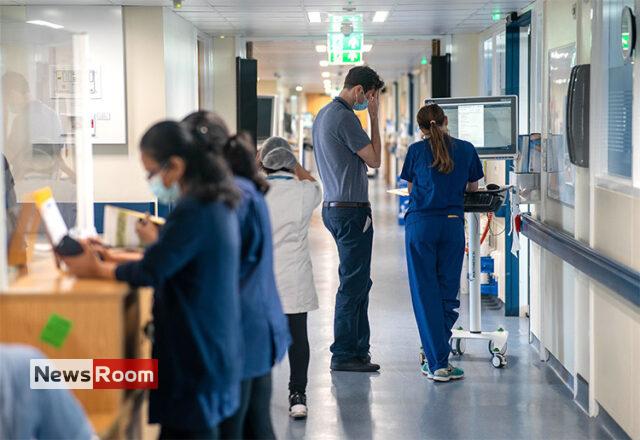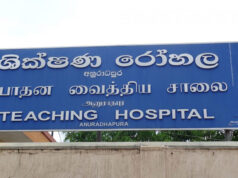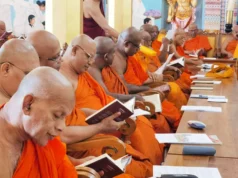by Dr Upul Wijayawardhana
British NHS was referred to as “Once a thing of grandeur; but now in the doldrums of an appalling abyss of gloom” by Dr B J C Perera (The Island, 6 April), who concluded his opinion piece by stating: “Let us face the current situation with some gratitude and resilience as the provision of healthcare services in Sri Lanka at present is far better than that provided by the NHS in the UK. Most unfortunately, judging by all reports, that is the inevitable conclusion arrived at by this author who was trained to be a Specialist Consultant in the very same UK National Health Service, in what now looks like aeons ago.”
In fact, I too,had my specialist training in the UK, before Dr Perera. My professional career of 46 years was equally divided between my Motherland and my adopted country, where I live in retirement, making use of the services provided by the NHS. It is true that the British NHS is no longer the best in the world, a position which it held for a long time, falling to fourth place in 2021, according to the survey by the American think-tank, the Commonwealth Fund. Even then, the British NHS was on top for affordability. It may have fallen in rankings further since but it is still among the top ten in the world. In fact, the country that does worst among developed countries is the USA.
I am Sri Lankan at heart and would therefore be very proud if the health services in Sri Lanka is able to surpass that of the UK but does the assertion of Dr Perera stand to scrutiny? Very unlikely.
His comments on the state of the British NHS are based on patient satisfaction surveys and it is no surprise that patient satisfaction has dropped significantly, as there are a multitude of reasons for the British public to be unhappy with services they receive. However, the comments on the Sri Lanka health service are based on his own opinions, not on patient surveys. For that matter, I wonder whether any patient satisfaction surveys are conducted in Sri Lanka. For scientific analysis to be accurate, comparisons should be done on like for like which is not so in this instance.
In fact, I would go a step further to state that health services in the UK and Sri Lanka are not strictly comparable. There is no doubt that we can be proud of the health services we provide in Sri Lanka, a remarkable service for a developing country but it is not a comprehensive NHS, which we can ill afford. What is provided in the UK is a comprehensive health service which is free at the point of delivery whereas what is provided in Sri Lanka is a free hospital service. Of course, private health care is excluded in any discussion of this nature as it is limited only a privileged section of the community though in Sri Lanka some underprivileged too are also forced to utilise these at tremendous personal cost, unfortunately. During liberalisation, JRJ allowed private practice to all medical officers, including interns, which has resulted in chaos. If surveys are conducted, the problems of reduced commitment to government service would be highlighted, I am sure. Leaving these aside, I would describe what the British NHS provides, as it is something we should aspire to.
Unlike in Sri Lanka, GP service is also part of the NHS though GPs work as independent contractors to the NHS, not as paid employees, which makes General Practice lucrative. However, patients do not have to pay for GP services and everyone must be registered with a GP. If a patient needs secondary care, it is the GP who makes the referral to hospital. However, for emergencies patients can attend the Accident & Emergency departments in hospitals. Unfortunately, some of these departments are being closed or slimmed down in the name of efficiency but mostly due to diminishing resources and lack of staff. Quite a lot of this has happened due to the formation hospital trusts with a degree of independence to serve districts. This change was brought about by a misguided Conservative Health secretary in 1991 who believed hospitals were under managed! He was trying to emulate the system in the USA, unfortunately, which has resulted in hospitals having more managers and less beds!
For any emergency, anyone can dial 999 to get an ambulance to take them to hospital. Sometimes, the paramedics treat the patient at home as they are well-trained in-patient assessment. Once admitted to hospital and treated, patients are not discharged till an assessment is made of the home situation, especially in the case of the elderly. This can lead to delayed discharge and ‘bed-blocking,’ which is the main reason for ambulances having to queue for admitting patients and one of the reasons for cancellation of routine operations, the biggest problem facing the NHS.
All services including GP services, ambulance and Hospital services are provided totally free but dental services are only subsidised. Those over 60 get free yearly eye tests. In England, those over 60 and those with endocrine diseases like diabetes get prescriptions free, which they collect from a private pharmacy, the prescription being sent there by the GP. The current charge is £9.65 irrespective of the cost of the drug and those on multiple medications can get a prepayment certificate for £111.60 which entitles them to get all medication for 12 months, which is the maximum anyone must spend on drugs in England. In Scotland, Wales and Northern Ireland, the devolved governments have decided to give free prescriptions to all. In Sri Lanka, most pensioners spend a significant proportion of their monthly pension on drugs, unfortunately.
Waiting lists for routine procedures have extended due to the impact of Covid-19, which affected the UK very badly. London being a major hub for international air travel, the UK was inundated with patients but manged the pandemic very successfully taking a lead in vaccination and removing all restriction well ahead of other countries. However, there is a price to pay but I am sure with the innovative ability of the NHS, things are bound to improve. Junior doctors are going on strike but this is a rare occurrence unlike in Sri Lanka where the GMOA calls a strike for the flimsiest reason.
NHS has problems but it still provides a more comprehensive service than Sri Lanka can.








